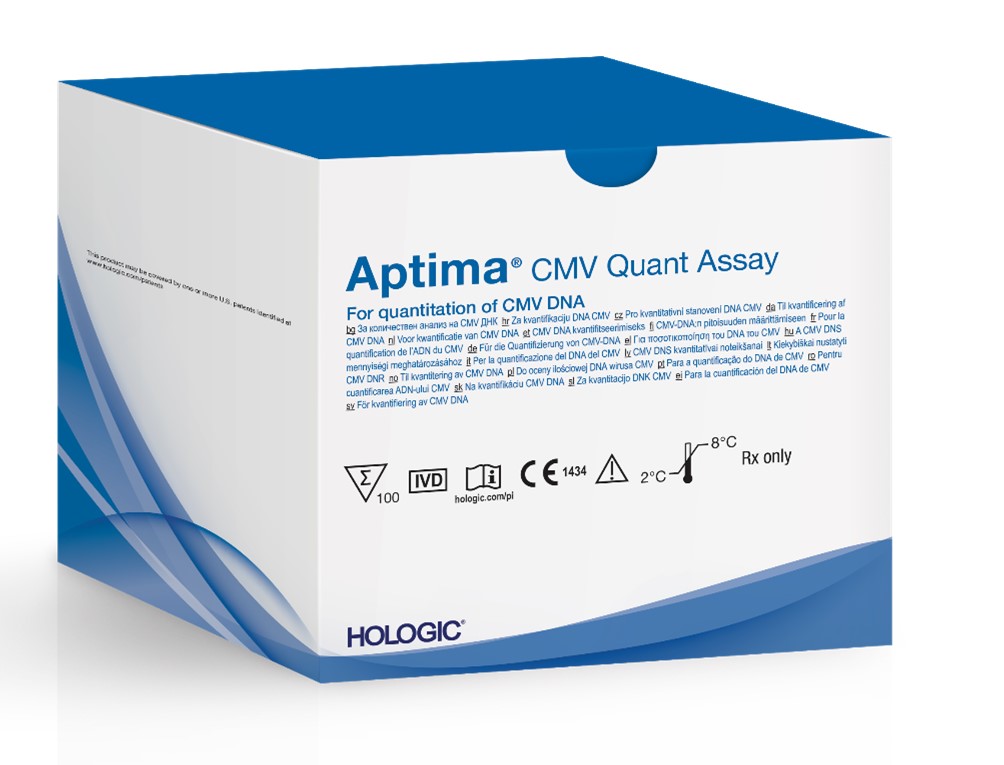Aptima CMV Quant Assay – P210029
This is a brief overview of information related to FDA’s approval to market this product. See the links below to the Summary of Safety and Effectiveness Data (SSED) and product labeling for more complete information on this product, its indications for use, and the basis for FDA’s approval.
Product Name: Aptima CMV Quant Assay
PMA Applicant: Hologic, Inc.
Address: 10210 Genetic Center Drive, San Diego, CA 92121
Approval Date: May 9, 2022
Approval Letter: Approval order
What is it?
The Aptima CMV Quant Assay is a laboratory test used to measure the amount of cytomegalovirus (CMV) genetic material, or viral DNA, in a patient’s blood. The test is designed for use on the Panther system, which runs the assay and analyzes the results.
How does it work?
A sample of the patient’s blood is sent to a clinical laboratory. At the laboratory, plasma sample is automatically separated and purified by the Panther system. The DNA collected from the plasma sample is mixed with test chemicals. The Panther system then measures and reports the amount of CMV viral DNA found in the plasma.
When is it used?
The Aptima CMV Quant Assay is used together with clinical information and other laboratory results to help manage patients who had solid organ transplant or hematopoietic stem cell transplant and are now receiving treatment for a CMV infection.
What will it accomplish?
Measurement of viral DNA levels in a patient’s plasma, combined with other clinical information and test results, helps doctors determine how well a solid-organ or hematopoietic stem cell transplant patient is responding to treatment.
When should it not be used?
The Aptima CMV Quant Assay should not be used without a health care provider’s prescription. It should also not be used as a screening test for detecting CMV viral DNA in non-transplant patients, blood or blood products.
Additional information (including warnings, precautions, and adverse events):


